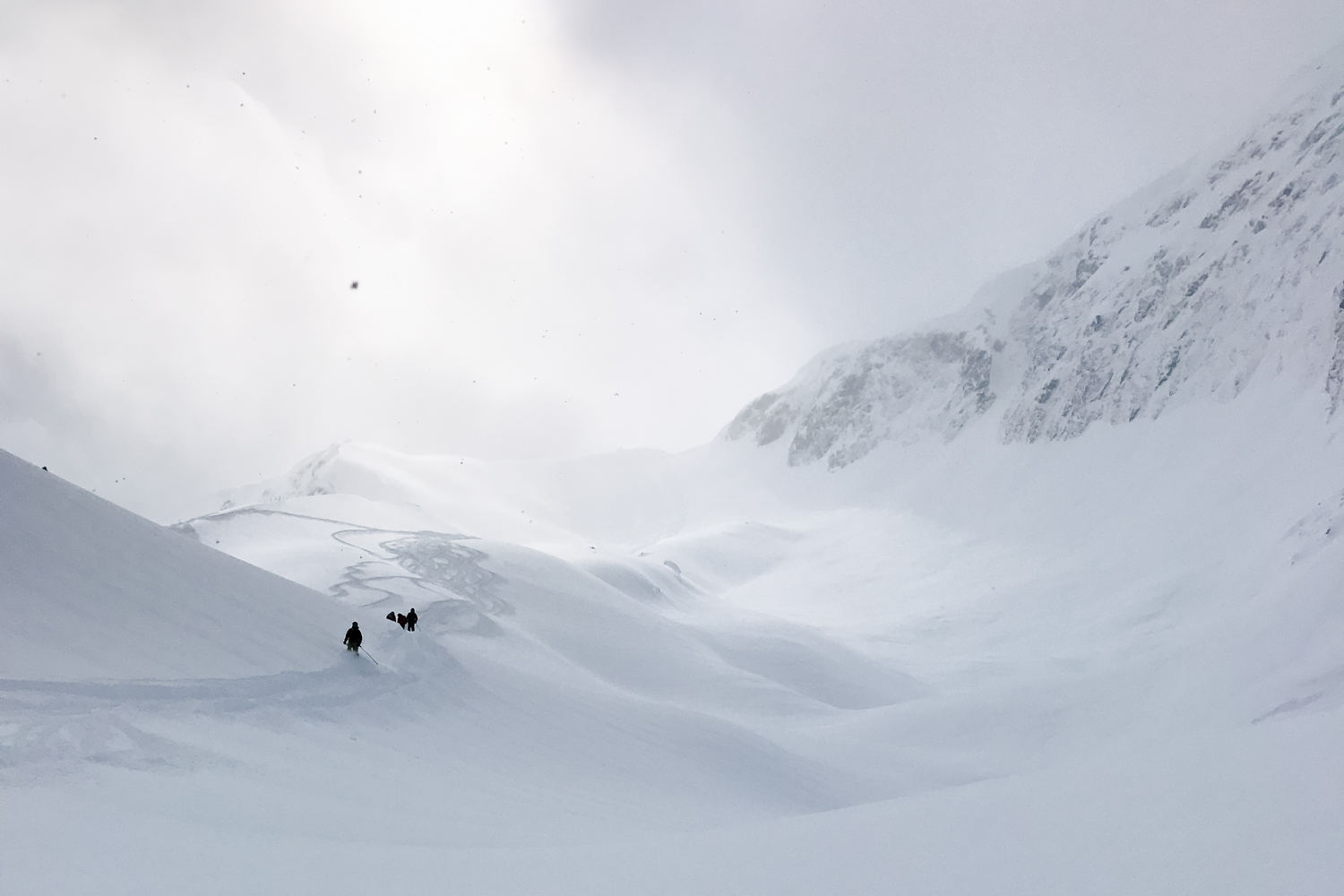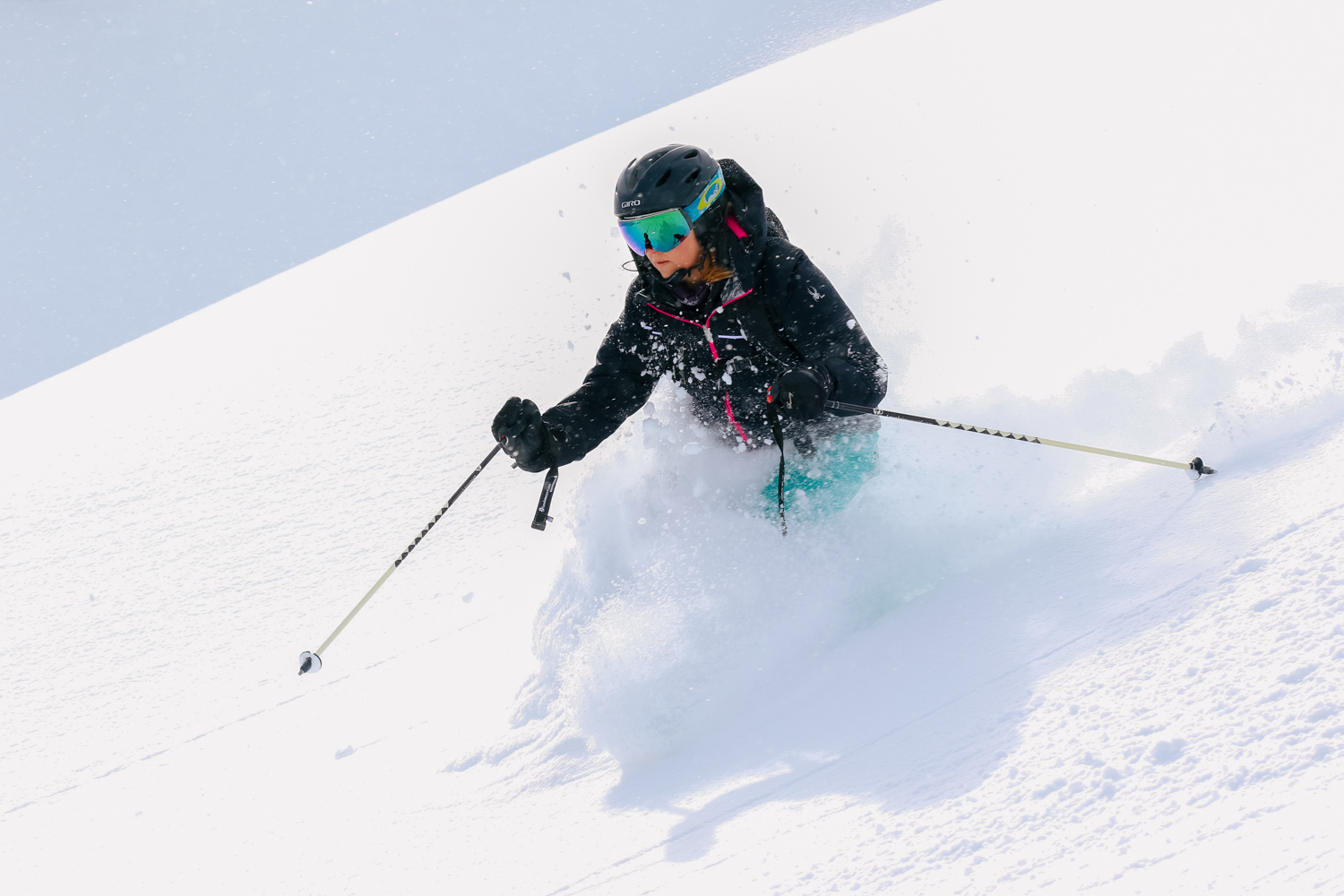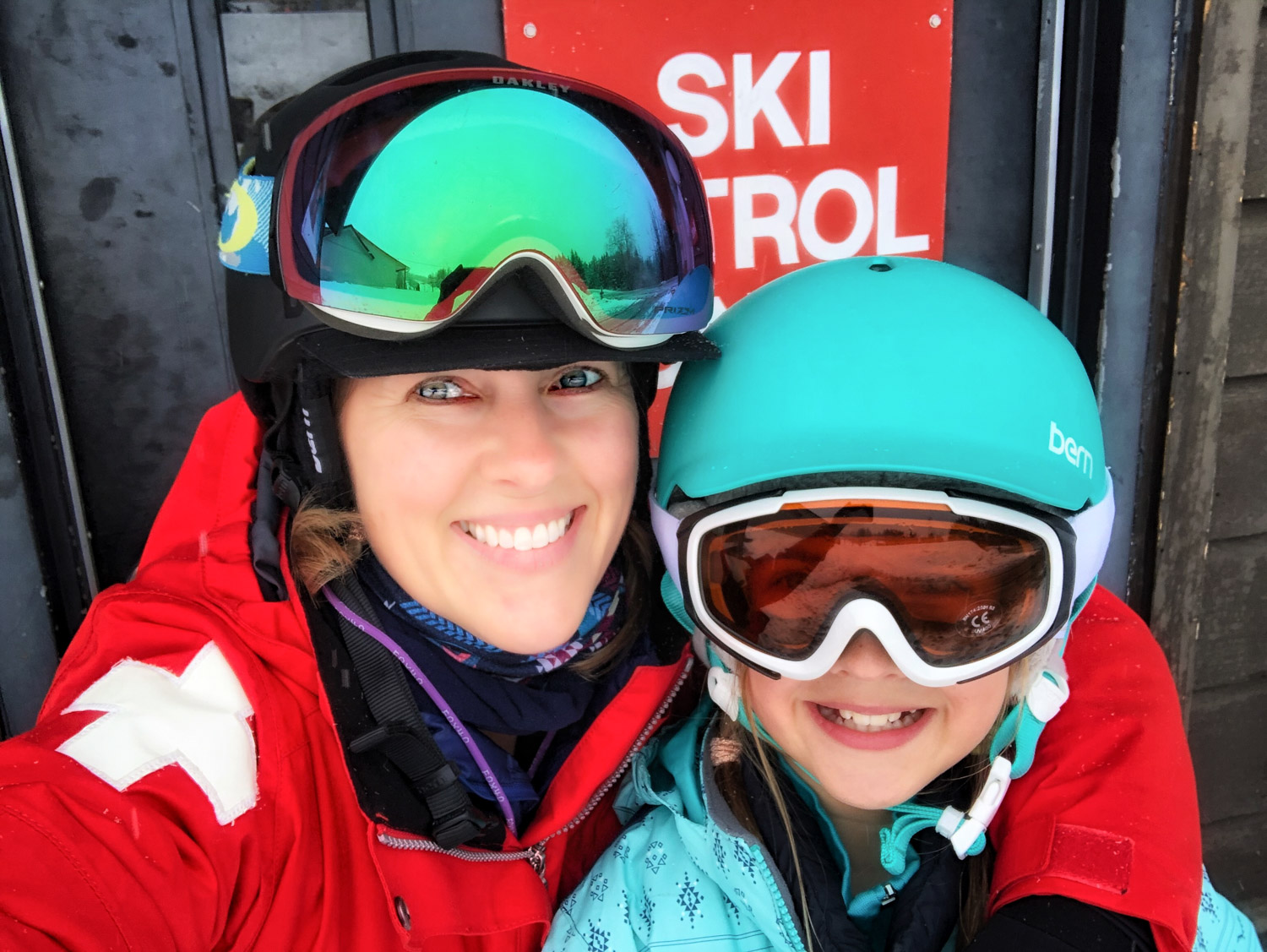The Joy of Mediocrity

The Joy of Mediocrity
There is no rule that says you have to be elite to passionately love what you do; you don’t even have to be good.
by Ali Wines
At what point are you ever good enough at something? Whether it’s your career, your hobby, your sport or your passion, there is rarely a definable moment when any of us can truly say, I belong here. So, how do you know?
A week ago today, I lay face down in the snow, crying out with pain and frustration, as my ski patrol teammates called frantically for a toboggan. My knee had made a sickening ‘pop’ sound as I fell, and I knew it wasn’t good before I even hit the ground. When the initial pain subsided, I was surprised to find that what was left behind, along with the sensation that my leg was more like spaghetti than the springy muscle I am used to, was a sense of complete failure.
I don’t have a gnarly story to tell you about how I blew my knee apart chasing pillow lines in the backcountry, or shredding steeps in Alaska. I crashed out on a patch of ice on a blue run in Ontario. Right under the chairlift. In my ski patrol jacket.
I know I shouldn’t feel embarrassed—this could have, and does, happen to anyone, no matter how good a skier they are. But you see, it took me a really long time to get here.

I learned to ski as a child and immediately, irrevocably fell in love with this ridiculous sport where we give ourselves over to the power of gravity, in freezing, inhospitable conditions. Growing up with a single mom in Australia, we didn’t have chalets in the snowfields or the money for European ski vacations. We skied when we could, but I left high school still the queen of the stem christie.
Nevertheless, skiing was almost an obsession for me. I daydreamed about it when I should have been studying, subscribed to ski magazines and went to see the latest Warren Miller film every year (they were cool back then). I was determined to get better, no matter what it took. I joined my university ski club and got a job in a ski shop (hired, most likely, because of the cut of the top I’d worn that day rather than my non-existent gear knowledge). The biggest perk was the free industry lift passes that the local mountains gave us, and the pro deals on gear made it affordable to finally have my own equipment.
When injured myself, it felt like that stem christie-ing teenager, that person who wasn’t “good enough” had come back. More painful than the injury itself was a fear that I would lose that hard-won sense of belonging.
Slowly, I started to improve, and the better I got, the more skiing became part of my life and my identity. I spent all the money I earned on ski weekends where we’d party until the wee hours then be up and ready to race by 6am. I absolutely loved it, even though I knocked all the poles out and mostly came last. Eventually, I saved up and took myself off to ski overseas—first a week in Squaw Valley, crashing on a friend’s couch, then a season in Whistler. I was broke and happy. I never dreamed that skiing could play an even more pivotal role in my life, or that I would wind up writing about my some-time life in the outdoors professionally.
Three years ago, we moved to Canada and, on a whim, I volunteered with the Canadian ski patrol. The impostor syndrome nearly overwhelmed me—I didn’t think I’d be good enough to keep up with people who were practically born with skis attached to their feet, but to my surprise, I was. I found a community of people as bonkers about skiing as me, and who welcomed me as one of their own.

The author in her ski patrol jacket
Around the same time, I started volunteering my professional skills with Protect Our Winters Canada. All of a sudden, I was speaking regularly about a subject even closer to my heart than skiing—climate change—alongside brands and people that I had looked up to for years. I started getting articles about the outdoors and the environment published in newspapers and small outdoor publications. It was surreal to recognize that I was becoming a genuine part of the community that I seemed to have watched from afar for so long.
So when injured myself, it felt like that stem christie-ing teenager, that person who wasn’t “good enough” had come back. More painful than the injury itself was a fear that I would lose that hard-won sense of belonging.
It’s only possible to wallow in the shallow puddle of self pity for a certain amount of time, though. It gets boring in there after a while. When I lifted my head and looked around, a realization hit me. I’m a good skier. But actually, who cares? There is no such thing as good enough.
It doesn’t matter whether you are the next King or Queen of Corbet’s, or you get a huge thrill from mastering your first green run. There is no rule that says you have to be elite to passionately love what you do; you don’t even have to be good. You certainly don’t have to be elite to be “allowed” to have a voice about it or feel part of a community of people who also love that thing.
I’m a good skier. But actually, who cares? There is no such thing as good enough.
There is a certain kind of perfection in mediocrity. I don’t have to think about my next win, or look a certain way to keep sponsors happy. I can be truly wild and free and ski for the sheer, unadulterated, child-like joy in it.
So I say to all of you out there, especially to the women, because we so often feel we have to be more of this or less of that in order to have a voice; just do the thing. If you love something, whether it’s skiing or surfing or climbing or curling, do it, a lot, and find a way to share it so others can feel the same joy.
While there are real barriers to entry in snow sports, that voice of self-doubt in your own head shouldn’t be one. So give that mediocrity a solid fist bump, and enjoy the rare and beautiful gift of doing something for no other reason than it makes you feel like a child racing down a hill with the wind in her hair and her arms out wide.
When I’m off these crutches, you can be damn sure I will be.
Ali Wines is a writer and storyteller for sustainability-oriented brands in the outdoor industry and beyond. She is a member of the Canadian Ski Patrol and a campaign advisor to Protect Our Winters Canada, and can usually be found searching for coffee or talking to dogs. Learn more at ali-wines.com and find her on Instagram @ali_wines.
Be the first to comment